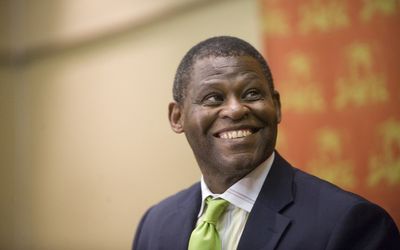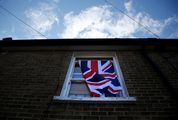Notwithstanding the emphatic judgment from the High Court in Pretoria on Friday that an appeal against its "spy tapes" judgment had no reasonable prospects of success, there are still legal avenues open to President Jacob Zuma and the National Prosecuting Authority (NPA) if they want to appeal.
The spy tapes judgment, delivered in April, set aside the 2009 decision to drop corruption charges against Zuma, effectively restoring the decision to prosecute him.
Early in 2009, when former acting prosecution head Mokotedi Mpshe announced his decision to withdraw the charges, he said his decision was based on the tapes — recordings of conversations between Scorpions head Leonard McCarthy and Bulelani Ngcuka, the country’s first post-1994 national director of public prosecutions.
The recordings appeared to suggest that the timing of the indictment against Zuma was manipulated to influence the outcome of the ANC’s elective conference. Mpshe said the abuse of the legal process disclosed in the tapes amounted to "gross neglect of the elementary principles of fairness" and it would be "unconscionable" for a trial to continue.
But in a case brought by the DA, the high court in April set aside Mpshe’s decision, saying it was irrational. And in refusing leave to appeal on Friday, Deputy Judge President Aubrey Ledwaba and judges Billy Mothle and Cynthia Pretorius said none of the arguments made by Zuma or the NPA for why they should be allowed to appeal had merit.
The judges said the relatively new Superior Courts Act had "raised the bar". Those seeking leave to appeal had to show that the appeal would have a reasonable prospect of success or that there was some other "compelling reason" to grant leave to appeal. Ledwaba, Pretorius and Mothle decided that Zuma and National Director of Public Prosecutions Shaun Abrahams had failed to clear those hurdles. Their argument that the judgment had constrained the prosecutorial discretion to discontinue a prosecution was based on a misinterpration of the judgment, they said.
When the judges said it should have been a court, rather than Mpshe, that determined whether there was an abuse of process, it was clear they were referring to the specific facts of this case. They had not made a finding that applied in all instances, said the judges. They said the NPA’s and Zuma’s legal teams were "selective as they focused on certain portions of the judgment, thus totally disregarding the essence and the order thereof".
They also rejected the argument that they had breached the separation of powers when they said Zuma must face the charges as outlined in the indictment. It was settled law that if a court set aside a decision to discontinue a prosecution, the charges were "automatically reinstated", the judges said.
The court, therefore, had no obligation to order that the matter be sent back to Abrahams for reconsideration. In fact, to make such an order would itself amount to a breach of the separation of powers.
Zuma and Abrahams had "invented novel legal grounds" to justify their appeal, but they had done so by misinterpreting sections of the judgment, the judges said.
Both Zuma and Abrahams have a month to approach the Supreme Court of Appeal (SCA), which might see things differently.
A petition to the SCA must be considered by two of its justices. They may dismiss it without a hearing, but also have the option to hear oral argument.
Although the test is the same — reasonable prospects of success or some other compelling reason — the SCA may have a different view to the high court judges and agree to grant leave to appeal, even on the same arguments made before the high court.
If the SCA turns them away, they could approach the Constitutional Court, where the test is different. The Constitutional Court may hear appeals on constitutional matters and also if a case raises "an arguable point of law of general public importance which ought to be considered" by the highest court. The overarching principle on appeal is whether an appeal is in the interests of justice.
The Constitutional Court has said before that in deciding whether it is in the interests of justice to hear an appeal, the court would weigh up a number of factors. The prospects of a successful appeal is just one of these and may not necessarily be decisive.

SPY TAPES: Mokotedi Mpshe withdrew corruption charges against Jacob Zuma in 2009. Picture: TYRONE ARTHUR
Notwithstanding the emphatic judgment from the High Court in Pretoria on Friday that an appeal against its "spy tapes" judgment had no reasonable prospects of success, there are still legal avenues open to President Jacob Zuma and the National Prosecuting Authority (NPA) if they want to appeal.
The spy tapes judgment, delivered in April, set aside the 2009 decision to drop corruption charges against Zuma, effectively restoring the decision to prosecute him.
Early in 2009, when former acting prosecution head Mokotedi Mpshe announced his decision to withdraw the charges, he said his decision was based on the tapes — recordings of conversations between Scorpions head Leonard McCarthy and Bulelani Ngcuka, the country’s first post-1994 national director of public prosecutions.
The recordings appeared to suggest that the timing of the indictment against Zuma was manipulated to influence the outcome of the ANC’s elective conference. Mpshe said the abuse of the legal process disclosed in the tapes amounted to "gross neglect of the elementary principles of fairness" and it would be "unconscionable" for a trial to continue.
But in a case brought by the DA, the high court in April set aside Mpshe’s decision, saying it was irrational. And in refusing leave to appeal on Friday, Deputy Judge President Aubrey Ledwaba and judges Billy Mothle and Cynthia Pretorius said none of the arguments made by Zuma or the NPA for why they should be allowed to appeal had merit.
The judges said the relatively new Superior Courts Act had "raised the bar". Those seeking leave to appeal had to show that the appeal would have a reasonable prospect of success or that there was some other "compelling reason" to grant leave to appeal. Ledwaba, Pretorius and Mothle decided that Zuma and National Director of Public Prosecutions Shaun Abrahams had failed to clear those hurdles. Their argument that the judgment had constrained the prosecutorial discretion to discontinue a prosecution was based on a misinterpration of the judgment, they said.
When the judges said it should have been a court, rather than Mpshe, that determined whether there was an abuse of process, it was clear they were referring to the specific facts of this case. They had not made a finding that applied in all instances, said the judges. They said the NPA’s and Zuma’s legal teams were "selective as they focused on certain portions of the judgment, thus totally disregarding the essence and the order thereof".
They also rejected the argument that they had breached the separation of powers when they said Zuma must face the charges as outlined in the indictment. It was settled law that if a court set aside a decision to discontinue a prosecution, the charges were "automatically reinstated", the judges said.
The court, therefore, had no obligation to order that the matter be sent back to Abrahams for reconsideration. In fact, to make such an order would itself amount to a breach of the separation of powers.
Zuma and Abrahams had "invented novel legal grounds" to justify their appeal, but they had done so by misinterpreting sections of the judgment, the judges said.
Both Zuma and Abrahams have a month to approach the Supreme Court of Appeal (SCA), which might see things differently.
A petition to the SCA must be considered by two of its justices. They may dismiss it without a hearing, but also have the option to hear oral argument.
Although the test is the same — reasonable prospects of success or some other compelling reason — the SCA may have a different view to the high court judges and agree to grant leave to appeal, even on the same arguments made before the high court.
If the SCA turns them away, they could approach the Constitutional Court, where the test is different. The Constitutional Court may hear appeals on constitutional matters and also if a case raises "an arguable point of law of general public importance which ought to be considered" by the highest court. The overarching principle on appeal is whether an appeal is in the interests of justice.
The Constitutional Court has said before that in deciding whether it is in the interests of justice to hear an appeal, the court would weigh up a number of factors. The prospects of a successful appeal is just one of these and may not necessarily be decisive.


















